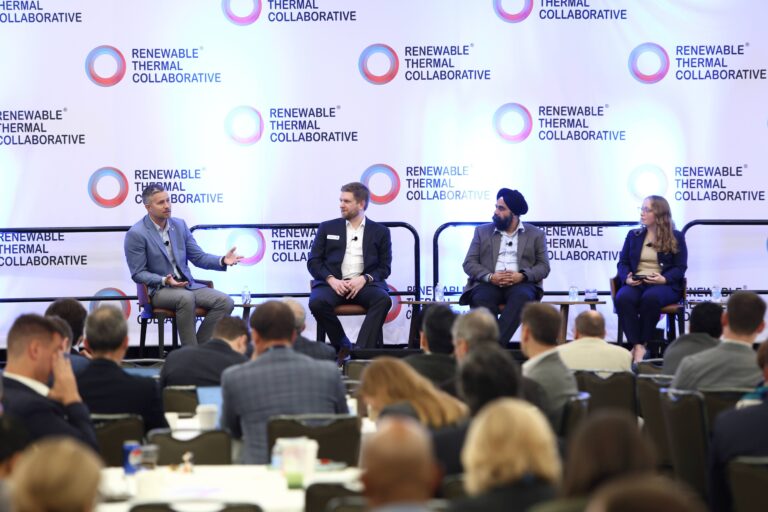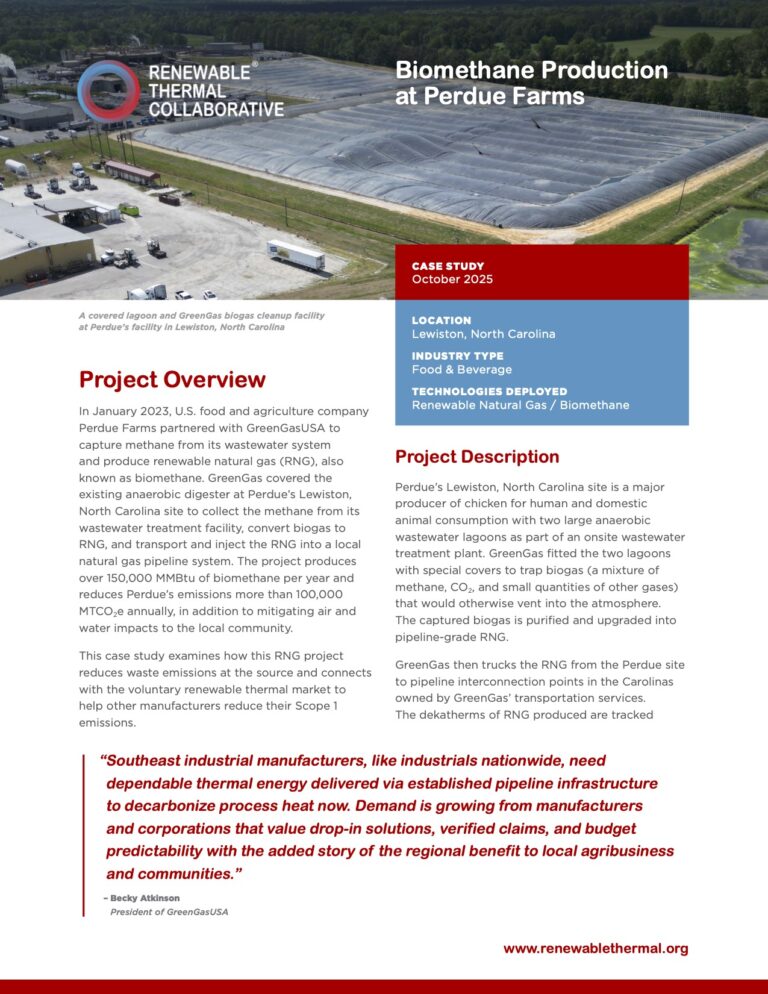By Cihang Yuan, Senior Program Officer, Climate and Renewable Energy, World Wildlife Fund
Industrial heat pumps (IHPs) are a game-changer for U.S. manufacturing. They offer a high-impact, near-term opportunity to reduce energy costs, enhance industrial competitiveness, and strengthen resilience in the face of evolving energy challenges. Yet, despite the technology’s transformative potential, IHP deployment remains slow. Why? Because buying and integrating an IHP into an industrial facility is anything but simple—it requires navigating a complex landscape of technical, financial, and regulatory considerations. The IHP Buyers Bootcamp was developed to address exactly these barriers, providing a structured path from early exploration to real-world deployment.
Barriers to IHP Deployment
Industrial buyers increasingly recognize the value of heat pumps, but many struggle to translate recognition into action. One of the biggest challenges is technical complexity. IHPs are not a one-size-fits-all solution. Different types of heat pumps are suited to different industrial processes. Understanding key technical specifications, evaluating suppliers, and integrating IHPs into existing manufacturing processes requires a level of expertise that many buyers are still developing.
Even when the technical case is clear, economics can pose a significant hurdle. The upfront cost of IHPs, combined with uncertain payback periods and internal competition for capital, makes financing a challenge. A key factor in the financial equation is the spark gap—the ratio of electricity to natural gas prices. In states where natural gas is much cheaper than electricity, switching to an electric heat pump may not be financially viable without external funding support. Buyers need to understand where electricity prices are competitive and what strategies, like third-party financing models such as energy as a service, rate optimization, and incentive stacking, can help close that gap.
Electricity is often the largest operating cost in an IHP project. That’s why it’s critical to plan for how electrification affects utility bills through changes in rate structures, demand charges, and even local grid capacity. Proactive engagement with utilities is essential for making the economics work.
Companies often struggle with the practical steps of deployment beyond technical and financial barriers. Securing internal buy-in, aligning stakeholders across finance, energy procurement, and facility teams, and developing a structured implementation plan can all present stumbling blocks. Without a clear roadmap, projects risk stalling in the early stages, leaving industrial leaders frustrated and unsure of how to proceed.
With so many variables to consider, even organizations committed to decarbonization often struggle with where to start. That’s where the IHP Buyers Bootcamp comes in.
From Knowledge to Action: The IHP Buyers Bootcamp
On March 19, 2025, the Industrial Heat Pump Alliance, founded by the American Council for an Energy-Efficient Economy (ACEEE), National Electrical Manufacturers Association (NEMA), and Renewable Thermal Collaborative (RTC), hosted its inaugural Industrial Heat Pump Buyers Bootcamp. This implementation-focused training session was designed to provide buyers with a roadmap for successfully deploying IHPs, covering everything from technical specifications to financing and utility engagement.
Participants from leading industrial companies walked away with actionable insights. The Bootcamp maximized peer learning, hands-on exercises, and direct access to experts through high-impact, small-group training.
- Technical deep dive: Participants learned about different types of heat pumps, key technical specifications, feasibility assessment tools, and procurement best practices. Case studies on successful process integration helped participants translate theory into real-world applications.
- Financial and utility strategies: Participants explored financing models, incentives, and utility engagement strategies to make IHP projects economically viable.
- Peer-to-peer learning: Industry peers engaged in small groups to exchange best practices, troubleshoot complexities, and gain insights from real-world projects.
Many participants reflected that one of the most valuable takeaways was the opportunity for buyers to connect with peers who have tackled or are currently navigating similar challenges. The ability to compare notes and crowd-source potential solutions among industry colleagues made a lasting impact.
As Rick Kotze, Sustainability Manager at Lactalis, a multinational food and beverage company, put it, “The IHP Buyers Bootcamp helps buyers cut through complexity. It accelerates your thinking and gives you the structure and support to move forward faster than you could on your own.”
Other participants echoed the importance of strategic alignment and technical integration. “Being intentional and creative in design, implementation, stakeholder buy-in, and financing is required for execution,” said Audrey Mitchell, Process Sustainability & Renewables Engineer at Saint-Gobain, a multinational construction material manufacturer.
“Proper integration of heat pumps is key to meet stakeholder expectations and performance requirements. There isn’t one solution for all,” added Stephanie Burden, Energy & Water Optimization Manager at General Motors.
Continuing the Momentum: Connecting Buyers and Suppliers
The March 19 Bootcamp was just the beginning. In April, the IHP Alliance hosted Buyer-Supplier Connect Sessions, creating a dedicated space for buyers—now equipped with the knowledge from the Bootcamp—to engage directly with IHP solution providers. This event facilitated one-on-one meetings for buyers to explore tangible project opportunities, discuss technology options, and begin translating insights into action.
Looking ahead, we’re bringing the Bootcamp in person to Charlotte, North Carolina during ACEEE’s Summer Study on Energy Efficiency in Industry in July. This session will offer real-world case studies, hands-on learning, and direct engagement with technical experts.
As the industrial sector continues to innovate and optimize its processes, IHPs can offer both economic and environmental benefits. The IHP Buyers Bootcamp was designed to help companies take action to access the full potential of this proven and scalable technology. Join us in July and move from concept to implementation.
For more details on the upcoming Bootcamp, reach out to hchen@aceee.org and ruth@dgardiner.com.



